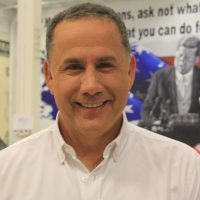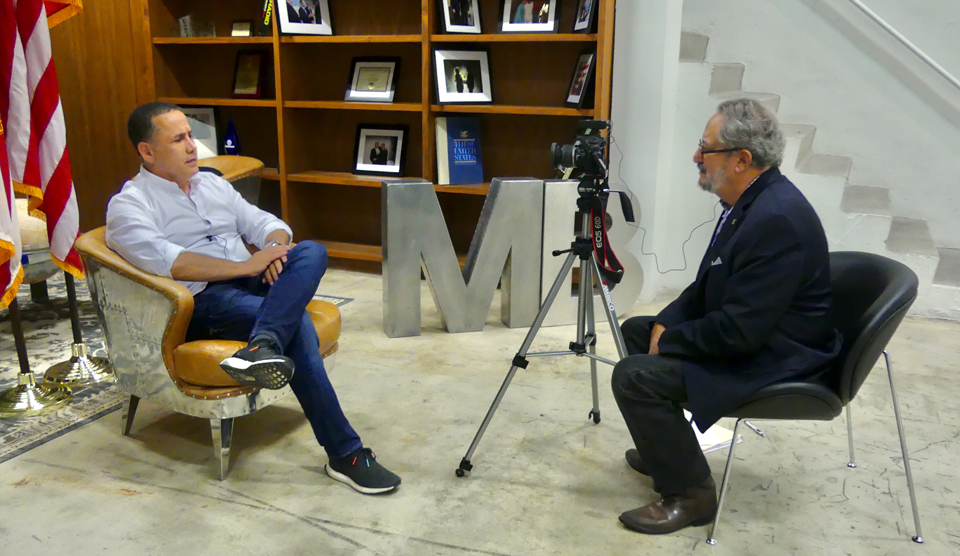Philip Levine: Art, Climate Change, Immigration, & Politics

Philip Levine (b. 1962) is an American businessman and politician who served as Mayor of Miami Beach from 2013 to 2017. In 2018, he is a candidate for the Florida governorship.
Philip Levine was born in Boston, Massachusetts, and moved with his parents to South Florida at the age of 10. He attended Attucks Middle School and Hollywood Hills High School in Hollywood, Florida. Levine is a graduate of the University of Michigan with a degree in Political Science. In 2015, Levine completed an advanced leadership program at The Fletcher School of Law and Diplomacy at Tufts University.
Following graduation from Michigan, Levine moved to Miami Beach, where in 1990, with $500 in capital, he launched Onboard Media in a studio apartment above the News Café on Ocean Drive. Conceived as a port-marketing program for the cruise industry, the company expanded to publish eighty-five in-state-room magazines and to produce TV programming.
After growing Onboard Media into a multimillion-dollar company, Levine partnered with Berkshire Partners to acquire Starboard Cruise Services. The merger resulted in the world’s largest cruise industry concessionaire, which was later sold to Louis Vuitton Moët Hennessy in 2000.
In November 2013, Levine was elected Mayor of Miami Beach, receiving over 50% of the total vote in a four-person race. His campaign was endorsed by former President Bill Clinton and U.S. Senator Bill Nelson. Levine ran on a platform of “Just Get It Done,” focusing on fixing street flooding and combating sea-level rise, cleaning up government corruption, reforming the police department and city finances, supporting the arts, and placing a priority on constituent service.
In June 2017, Levine hosted the annual U.S. Conference of Mayors in Miami Beach. The event brought together over 300 mayors from across the country and was the first Conference of Mayors held in the city since 1962.
As a resident and later Mayor of Miami Beach, Levine witnessed the tremendous impact of the arts on the vitality of Miami and Miami Beach. Miami Beach is home / host of the annual Art Basel art fair (with the combination of other satellite fairs, the largest art fair in the USA), the New World Symphony, Miami City Ballet, theaters, music clubs, and one of the world’s largest art deco architecture districts.
In the spring of 2018, ArtSpeak recorded a video interview with Levine in his Wynwood Art District gubernatorial campaign headquarters.
The videos below are organized by topic and run between 30 seconds and 3 minutes. Click on any video. You must be connected to the Internet to view the videos.
VALUES EDUCATION: 1:22 min.
INSIGHT & INSPIRATION: 2:30 min.
CRITICAL THINKING: 0:59 sec.
UNDERSTANDS THE AUDIENCE’S PERSPECTIVE: 1:12 min.
CRITICAL THINKING: 1:29 min.
STRONG DRIVE FOR ACHIEVEMENT: 1:09 min.
CRITICAL THINKING: 1:18 min.
UNDERSTANDS THE AUDIENCE’S PERSPECTIVE: 0:51 sec.
SELF-CONFIDENCE: 0:49 sec.


